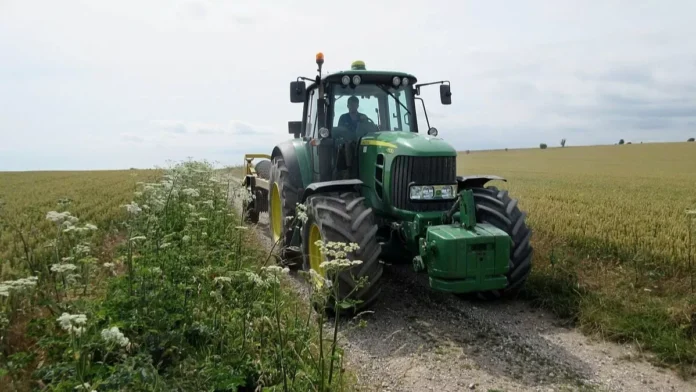The Progressive Stranglehold of Climate Change Policy in Europe: A Warning for American Farmers
Europe, known for its lush green fields and bountiful harvests, has been facing a new challenge in recent years – the progressive policies aimed at combating climate change. While these policies seem noble and necessary on the surface, they have taken a toll on the farmers of Europe, resulting in widespread protests and a bleak future for the agricultural industry. And if we do not learn from their experience, American farmers may soon face a similar fate.
The European Union has been at the forefront of the fight against climate change, implementing ambitious policies such as the Common Agricultural Policy (CAP) and the European Green Deal. These policies aim to reduce greenhouse gas emissions, promote sustainable farming practices, and protect biodiversity. However, the implementation of these policies has been far from smooth, with farmers bearing the brunt of the burden.
One of the biggest challenges faced by European farmers is the strict regulations imposed on them in the name of climate change. These regulations not only increase the cost of production but also limit the farmers’ ability to adapt to changing weather patterns and market demands. The rules on crop rotation, for instance, have resulted in reduced yields and increased soil erosion, making it difficult for farmers to make a decent living.
Moreover, the EU’s focus on reducing carbon emissions has led to a shift towards biofuels, which has significantly increased the competition for land and resources. This has resulted in a sharp rise in land prices, making it harder for small and medium-sized farmers to compete with larger, more financially stable farms.
Another major factor contributing to the farmer protests in Europe is the lack of support from the government. While the EU’s climate policies have put a strain on farmers, the subsidies and financial assistance promised to help them transition to more sustainable practices have been slow to materialize. This lack of support has left many farmers struggling to make ends meet and forced them to take to the streets in protest.
The consequences of these policies have been dire for European farmers. Many have been forced to abandon their farms and look for alternative sources of income, while others have been pushed to the brink of bankruptcy. This has not only affected the farmers themselves but also the rural communities that rely on agriculture for their livelihoods.
The ongoing farmer protests in France, Germany, and other European countries serve as a warning for American farmers. As the US government adopts a more aggressive stance on climate change, it is essential to learn from the mistakes made by European policies and avoid repeating them.
The US agricultural industry is vital to the country’s economy, contributing over $1 trillion annually. It is also responsible for providing food security to millions of Americans and feeding the world’s growing population. However, with the increasing pressure to reduce carbon emissions, American farmers may soon find themselves in a similar situation as their European counterparts.
But it is not too late to change course. American farmers must be given a seat at the table when it comes to formulating climate policies that directly impact their livelihoods. Their voices and experiences must be taken into account to ensure that any regulations or subsidies are practical and sustainable for the farming community.
Furthermore, the government must provide adequate support and resources to help farmers transition to more sustainable practices. This can include funding for research and development of new technologies, tax incentives for adopting sustainable methods, and access to affordable loans for investing in eco-friendly equipment.
The European experience has also shown that cooperation and collaboration between farmers and environmentalists can lead to better outcomes for both. By working together, farmers can learn about the latest sustainable practices, while environmentalists can understand the challenges faced by farmers and offer practical solutions.
In conclusion, the farmer protests in Europe serve as a wake-up call for the American farming community. As the world comes together to fight the threat of climate change, it is essential to find a balance between protecting the environment and supporting the livelihoods of those who feed us. Let us learn from the mistakes made in Europe and work towards a sustainable and prosperous future for American farmers.

